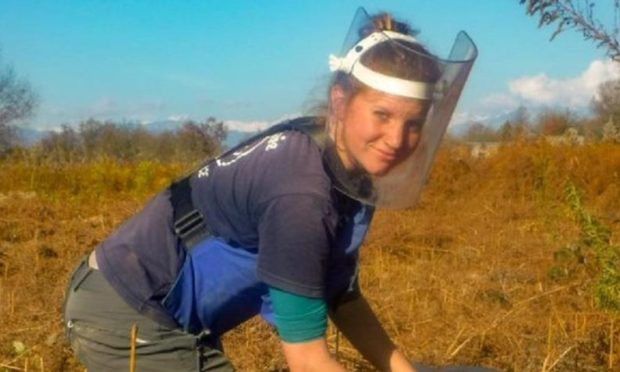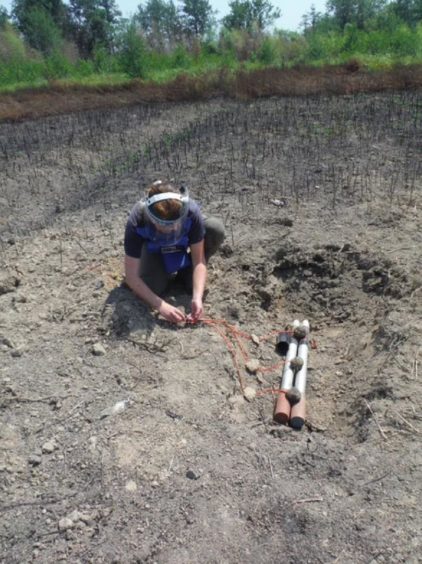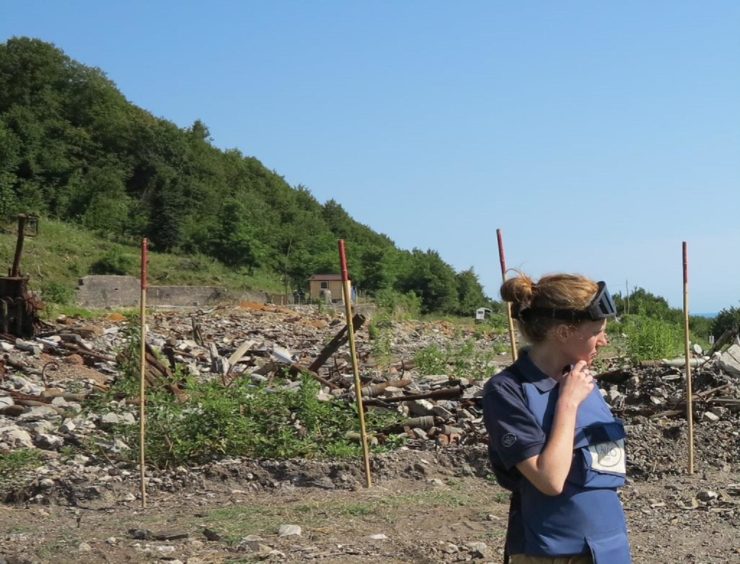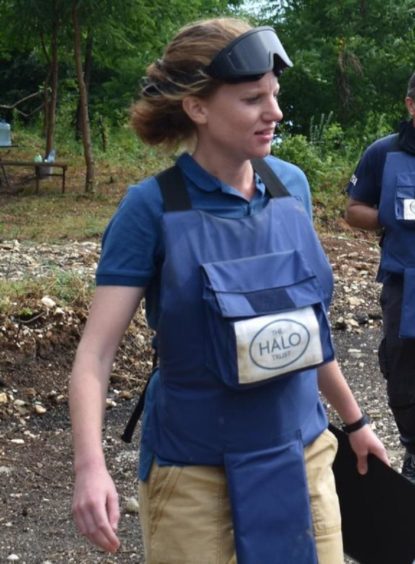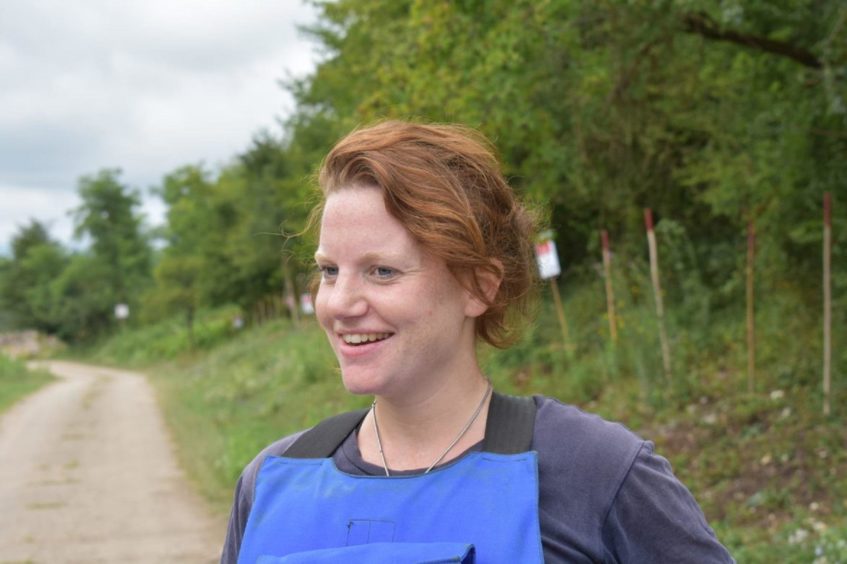A Tayside humanitarian hero who clears landmines in some of the world’s most hazardous countries has said she’s proud to be exploding the myth only men can do the dangerous job.
Mairi Cunningham leads Scottish demining charity The HALO Trust’s team ridding Syria of deadly devices.
The Broughty Ferry 32-year-old has also worked in the trouble spots of Cambodia, Somaliland and the disputed Caucasus region of Abkhazia.
Speaking on International Women’s Day, Mairi admits she still encounters antiquated attitudes to women taking on her kind of work.
She said: “I don’t want to paint to negative a picture of the sector, but it’s not been the easiest or smoothest of rides.
“Unfortunately, I’ve encountered chauvinist and sexist behaviour – quite a lot of it.
“It often surprises men in certain contexts, the questions I ask, and the issues I raise,” she said.
“You can see them think ‘How does she know that?’. It’s because I’m trained, I’ve been in a minefield, I’ve done disposal, and I know what I’m talking about.”
She said dealing with local governments or military was often a challenge.
“I’ve never had anyone refuse to deal with me outright, but you do sometimes sense a rolling of the eyes,” she said.
Russian munitions blast
Mairi worked for almost two years as HALO’s deputy programme manager in the Caucasus dealing with the aftermath of a massive ammunition warehouse explosion in Abkhazia near the Russian border, which scattered an estimated 100,000 items of unexploded ordnance across 450 hectares.
She said: “In the Caucasus, there can be quite a traditional macho culture, but women are playing a vital part in detecting and destroying nearly 100,000 items – 30% of our team are female.
“We are challenging the stereotypes of what women are capable of doing.
“These women then serve as a role model for the women in their communities, for their children, their friends’ children, so it has a ripple effect.”
In Syria, she is part of a mixed gender team which has been crucial to gaining greater access to the communities.
“In a lot of these cultures, to speak to local women, you need women on the team,” she said.
“There is still the stereotype of the sort of person that should be doing our job but that is shifting.”
Army sibling
Mairi admits that even people back home in Scotland are surprised to discover her dangerous job, but says her parents never attempted to deter her from taking up her role with HALO.
She said: “My parents never tried to put me off.
“My brother is in the army and has done several tours in Afghanistan, so I thought ‘Well, it’s my turn to keep them on their toes’.
“I’m sure working with explosives in places like Syria can be a little nerve-wracking for them, but I’ve always been a bit of a traveller, and do a lot of more edgy pursuits like skiing and mountain sports, so they are used to the fact that I am not someone that will sit at home and water my plants.
“I think they respect the work I do and are proud, but I think they maybe don’t want too much of the details of what I’ve seen or done.”
Mairi joined HALO in 2018 and started her new role as programme manager for Syria in December. She’s currently overseeing her team of 80 staff from Amman, Jordan but is awaiting international clearance to join her teams on the ground in the north-west of the country soon.
Shining example
Foreign Secretary Dominic Raab said: “Mairi is a shining example of the brave individuals who are working to remove the global scourge of landmines in some of the most dangerous parts of the world.
“International Women’s Day is an important opportunity to shine a light on the work she and many other female deminers do.
“The UK Government is pleased to be supporting The HALO Trust in its work training deminers and ridding the world of these deadly devices.”
The Foreign, Commonwealth & Development Office has invested £124m to help clear the equivalent of 28,500 football pitches of deadly explosive devices worldwide in the last three years through the Global Mine Action Programme.
It funded HALO’s work in north-west Syria between October 2018 and March 2020, supporting five community teams.
The Syria Crisis has been the UK Government’s biggest ever humanitarian response, committing over £3.5bn of support, including the delivery of over 28 million food parcels, 20 million medical consultations and 14 million vaccines, since 2012.
